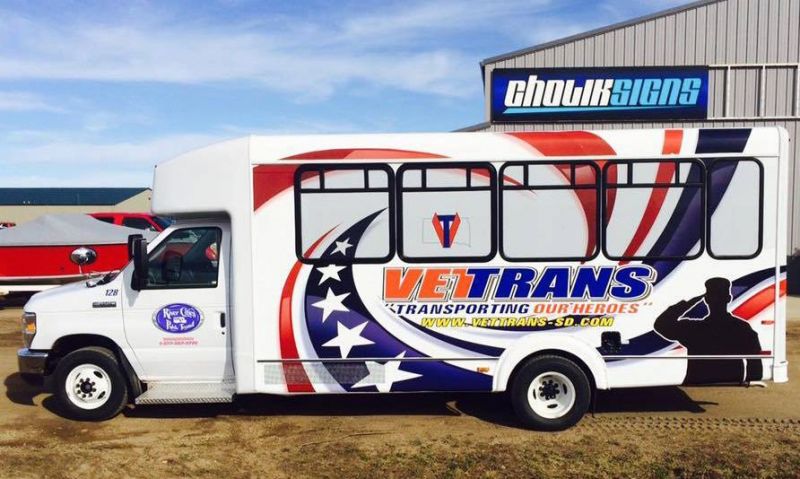
American Legion Post 20 in Fort Pierre, S.D., provides eligible veterans and a caregiver living in one of South Dakota’s 34 highly rural counties with roundtrip transportation to VA medical appointments at no charge.
Over the past year, American Legion Stanley Post 20 in Fort Pierre, S.D., assisted rural area veterans statewide with 1,000 rides to and from VA medical appointments, all at no cost to the veteran. This was made possible thanks to Post 20 receiving a Department of Veteran Affairs Highly Rural Transportation Grant (HRTG).
According to the VA, about 35 percent of veterans enrolled in the VA healthcare system live in rural or highly rural areas. Veteran service organizations and state veterans service agencies can apply for an HRTG to provide veteran transportation services in eligible counties (ones with fewer than seven people per square mile). Post 20 recently applied for another HRTG to serve eligible veterans and a caregiver living in one of South Dakota’s 34 highly rural counties with roundtrip transportation to VA medical appointments at no charge.
And in October, Post 20 learned that the VA renewed its $600,000 transportation grant – one of the largest awards in the United States.
“I thank the VA for caring enough to help highly rural veterans make it to their VA medical appointments,” said Eugene Collett III, Post 20 adjutant and finance officer. “I also appreciate River Cities Public Transportation (RCPT) for their aid in getting the grant for us and providing veterans with transportation services.”
Post 20 works with two transportation companies, RCPT and Prairie Hills Transit (PHT), to provide rides for veterans enrolled in the VA who live in qualified counties. Examples of areas served include Rapid City and Sioux Falls, as well as Rochester, Minn., and many eastern counties in Wyoming.
“This has been a tremendous program for South Dakota veterans,” said Ron Baumgart, executive director of RCPT, to Capital Journal. “We are honored to be in partnership with Stanley County Post 20 to offer veterans living in qualifying counties access to their VA doctors’ appointments. These funds from the VA will make a tremendous impact on providing better health outcomes for rural veterans.”
This is the fifth year Post 20 has been involved with the transportation program. Collett said the first two years, veterans did not take them up on the opportunity for rides to their VA medical appointments because of other transportation services. “We were going to shut down and the HRTG coordinator came to help iron out the problems we were having.” An area that Post 20 was not providing transportation needs was in Onida, S.D., resulting in RCPT having to turn down rides to veterans. “The HRTG coordinator suggested changing the scope to include counties around Hughes County and demand started to grow.”
Growth continued for veteran transportation needs once the word was spread at American Legion district meetings by the late Royce Loesch, who served as Post 20 commander and was instrumental with the HRTG, and by RCPT and PHT spreading the word and displaying their wrapped “Transporting Our Heroes” vans and buses.
Collett explained to Capital Journal that for an eligible veteran to receive transportation services, he or she first sets up a VA authorized appointment, then calls the transit system to schedule transportation, and the transit calls the VA to confirm the medical appointment. “It has to be the veteran coming forward in scheduling an appointment and the transportation. We can help them if they want us to,” Collett said. At the end of the quarter RCPT and PHT send Collett trip information and an invoice for services provided. He reviews the trip information, request funds from VA to cover costs, and submits payment to the transit systems.
“The veteran calls the transit system, the transit calls Veteran Affairs to confirm the medical appointment,” Collett said. ”Then, I forward the transit request and the accounting to the Veterans Affairs on the federal level. It has to be the veteran coming forward in scheduling an appointment and the transportation. We can help them if they want us to.”
“We couldn’t provide the rides without Post 20 obtaining the grant, and the grant wouldn’t be successful without RCPT and PHT performing the rides,” said Jess Marlow, with River Cities Public Transit, to Capital Journal.
- Veterans Healthcare

